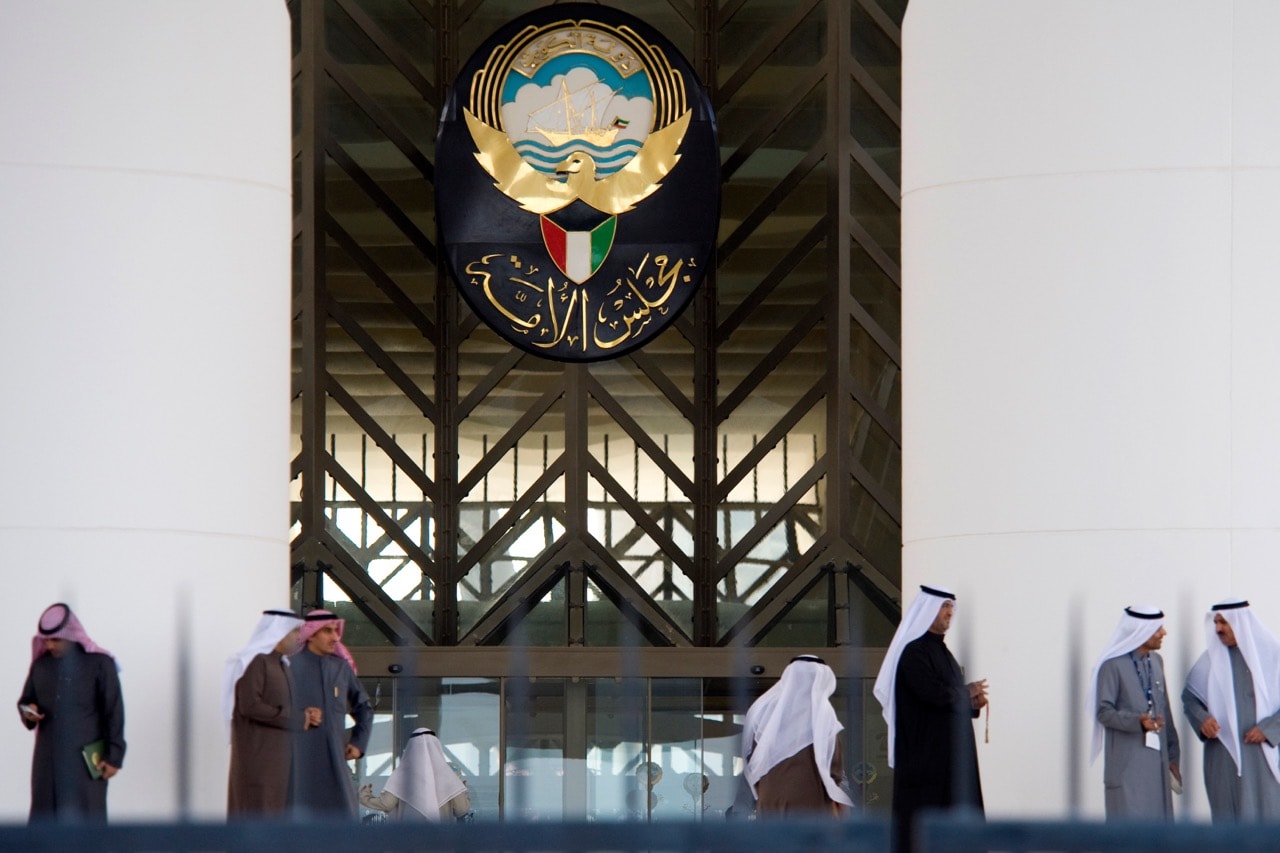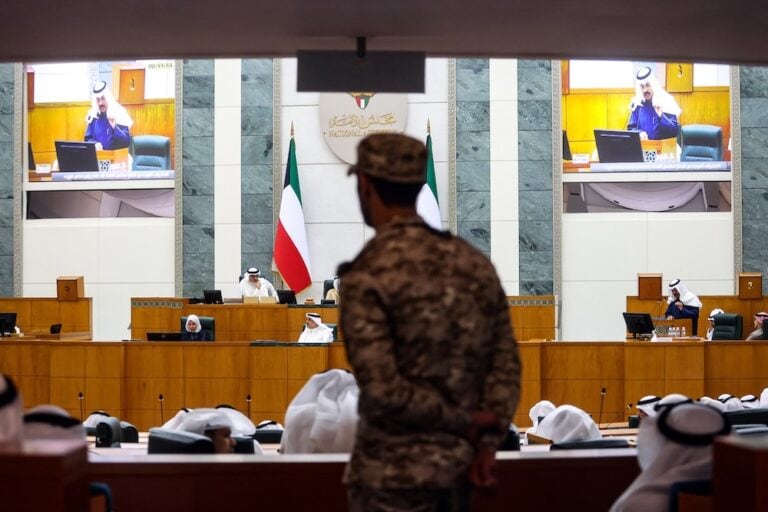Prominent human rights defender Abdulhakim Al-Fadhli is still being held at the Central Prison in Kuwait and risks facing deportation from the country, according to reports received by the Gulf Centre for Human Rights (GCHR).
This statement was originally published on gc4hr.org on 14 July 2017.
Prominent human rights defender Abdulhakim Al-Fadhli is still being held at the Central Prison in Kuwait and risks facing deportation from the country, according to reports received by the Gulf Centre for Human Rights (GCHR).
He has been detained at the Central Prison in Kuwait since 26 September 2016 after he voluntarily surrendered himself following a Cassation Court’s ruling. Al-Fadhli is serving a sentence of one year in prison handed down in case number 1137 of the year 2012 for charges of gathering and participating in a peaceful demonstration and assembly.
Al-Fadhli spent 56 days in detention in relation to the same case from 19 April to 14 June 2016 which has been deducted from the one-year sentence. Hence, it is feared that he will be transferred to Tolha Prison, the deportation prison, once he serves the full one-year sentence.
On 14 June 2016, at a hearing, the Court of Cassation ruled that it would convert the first of several cases against him (in which he was accused of calling for a gathering) from a felony to a misdemeanor. As a result, the one-year sentence was suspended and the court ordered him to be released pending review of his case by the Misdemeanors Appeals Court at a hearing on 20 September 2016.
On 2 August 2016, Al-Fadhli was released from prison after serving a three-month sentence, among other sentences. The three-month prison sentence was issued on 23 February 2016 on a charge of alleged misuse of the phone related to his participation in a peaceful demonstration on 2 October 2013.
On 20 September 2016, the judge of the Misdemeanors Appeal Court rejected Al-Fadhli’s appeal of his sentence. The judge confirmed the sentence of one year in prison with labour, to be followed by deportation from his country, which was originally handed down on 16 May 2016.
Abdulhakim Al-Fadhli is a prominent Bedoon human rights activist and he is also involved as an observer in monitoring human rights violations in Kuwait. He has spent the last few years being repeatedly arrested and detained.
He has undertaken four hunger strikes while in the Central Prison to protest his arrest and ill-treatment. The last hunger strike started on 2 March 2017 and only ended on 25 May 2017.
GCHR believes that Abdulhakim Al-Fadhli is targeted solely due to his peaceful and legitimate activities in defence of the civil and human rights of the Bedoon community in Kuwait.
GCHR urges the authorities in Kuwait to:
- Release Abdulhakim Al-Fadhli immediately and without any conditions;
- Immediately rescind the deportation order against Abdulhakim Al-Fadhli; and
- Guarantee in all circumstances that all human rights defenders in Kuwait are able to carry out their legitimate human rights activities without fear of reprisals and free of all restrictions including judicial harassment.
GCHR respectfully reminds you that the United Nations Declaration on the Right and Responsibility of Individuals, Groups and Organs of Society to Promote and Protect Universally Recognized Human Rights and Fundamental Freedoms, adopted by consensus by the UN General Assembly on 9 December 1998, recognises the legitimacy of the activities of human rights defenders, their right to freedom of association and to carry out their activities without fear of reprisals. We would particularly draw your attention Article 6 (c): “Everyone has the right, individually and in association with others: (c) To study, discuss, form and hold opinions on the observance, both in law and in practice, of all human rights and fundamental freedoms and, through these and other appropriate means, to draw public attention to those matters”, and to Article 12 (2): “The State shall take all necessary measures to ensure the protection by the competent authorities of everyone, individually and in association with others, against any violence, threats, retaliation, de facto or de jure adverse discrimination, pressure or any other arbitrary action as a consequence of his or her legitimate exercise of the rights referred to in the present declaration.”



